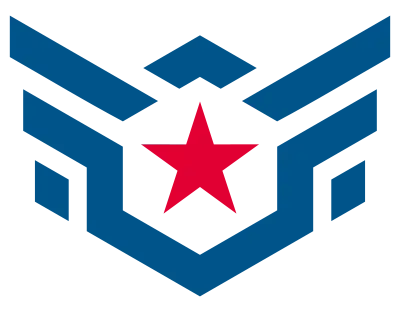Jobs for People with Learning Disabilities
Creating Employment for People with Learning Disabilities
Jobs for People with Learning Disabilities
Only 44 percent of adults with learning and intellectual disabilities aged 21-64 are employed in the workforce. This is compared to 83 percent of working-age adults without disabilities in the labor force. Several factors lead to a lack of jobs for people with learning disabilities:
- Lack of awareness and understanding: Many employers are not aware of the abilities of people with learning and intellectual disabilities, or they may have negative stereotypes about them.
- Difficulties with job applications and interviews: People with learning disabilities may have difficulty completing job applications or answering interview questions.
- Need for accommodations: Some people with learning and intellectual disabilities may need accommodations in the workplace. Not all employers are willing to provide these accommodations.
- Lack of confidence: People with learning disabilities may lack confidence in their abilities, which can make it difficult for them to find a job.
Despite these barriers, there are many resources available to help people with learning disabilities find jobs. These resources include job preparation, placement, and on-the-job support, and are available at PRIDE Industries.
Employment Services for People with Learning Disabilities
Job Preparation
There are a number of ways PRIDE Industries helps people with learning and intellectual disabilities prepare for the job market, including:
- Goal setting: All services tailored to individuals’ interests and goals. We work with people to set goals and make plans to achieve them.
- Skills assessment: We help people with learning disabilities assess and identify their skills and experience to determine which skills best align with job opportunities.
- Communication skills: We help people with learning disabilities and intellectual disabilities learn how to give and receive feedback, write clear and concise emails, and ask for and confirm job expectations, and more.
- Application and interviews: We help people with job application and preparation for interviews.
- Accommodation analysis: We identify any workplace accommodations people with learning disabilities may need, including physical accommodations such as a quiet work environment, technology accommodations such as noise-canceling headphones, or scheduling accommodations such as the ability to take breaks if they are feeling overwhelmed.
Job Placement
PRIDE Industries welcomes and supports people with learning and intellectual disabilities as they develop their careers. We tailor services to each individual’s goals, interests and needs. We offer training, accommodation, and employment. Our person-centered model is designed to help individuals leverage their skills and empower them to can reach their employment goals and achieve independence.
PRIDE Industries directly hires people with learning disabilities in our core manufacturing, logistics, and supply chain and commercial facilities services. We also work with employment partners to prepare, place, and support employees with learning disabilities in partner businesses. We have helped thousands of people with learning disabilities find employment. Career opportunities include staff, management, and executive positions.
On-the-Job Support
Employment coaches support people with learning and intellectual disabilities on the job by ensuring that they have:
- A welcoming and inclusive work environment: To achieve this, we educate staff about disabilities in the workforce, show employers how to promote understanding and acceptance, and how to celebrate diversity.
- Training and development opportunities: This helps people with learning and intellectual disabilities develop their skills and confidence, and progress in their careers.
- Recognition and rewards for achievement: Recognition and rewards help people with learning disabilities feel valued and appreciated and contribute to their overall well-being by providing advancement opportunities.

Our Commitment to Service Excellence
PRIDE Industries holds the prestigious 3-year accreditation from the Commission on Accreditation of Rehabilitation Facilities (CARF), an international, nonprofit health and human services accreditor. This recognizes that we have made a specific commitment to put the needs of our participants at the center of the services we design and deliver, and that we strive to continuously improve efficiency, fiscal health, and service quality and delivery.
In part, this accreditation recognizes PRIDE Industries for:
- Providing excellent employment services, employee development services, and employment planning services.
- Being highly regarded in the community and building positive relationships with partners and employees.
- Holding safety as a high priority.
- High satisfaction from persons served, families, and other stakeholders.
- Longevity of leadership, which provides continuity to the organization’s mission.
- Diversity, equity, and inclusion efforts.
CARF accreditation means that the CARF-accredited provider is committed to reducing risk, addressing health and safety concerns, respecting preferences of individuals (cultural or otherwise), and providing the best quality of care possible. It also shows that the accredited organization values the feedback and input of their customers with disabilities and is accountable to the community. And, finally, accreditation demonstrates that an organization has opened its service delivery and business processes to outside scrutiny to improve the quality of its programs.
FAQs: Jobs for People with Learning Disabilities
-
There are many jobs that people with learning disabilities and intellectual disabilities can do, depending on their skills, interests, and the nature of their disabilities. The most important thing is to find a job that is a good fit for the individual and that they are passionate about.
- Customer service representative: This job involves interacting with customers and resolving their issues. It is a good fit for people with learning disabilities because job responsibilities are documented and objective, and expectations are clear.
- Data entry: This job involves entering data into a computer system. It is a good fit for people with learning disabilities because it is repetitive and does not require on-the-spot subjective decision-making.
- Retail clerk: This job involves tasks like stocking merchandise, directing customers, and packaging goods. It is a good fit for people with learning disabilities because it is a flexible job that can be tailored to the individual's strengths and weaknesses.
-
Resources are available to help people with learning disabilities get jobs through typical hiring channels or through organizations dedicated to helping people with disabilities find jobs. Help is often available from state departments of rehabilitation and regional centers, which offer a variety of benefits to help people with learning and intellectual disabilities find and keep jobs, such as job training, resume writing assistance, and job placement services. It is also easy to do some research online to learn about different jobs that are a good fit for people with learning disabilities.
-
The unemployment rate for adults with learning and intellectual disabilities is more than twice as high as those without disabilities. About 21 percent of working age adults with learning disabilities are unemployed. This is compared to less than eight percent of adults without disabilities who are unemployed. There are many things that can be done to improve the employment rate for people with learning and intellectual disabilities, including providing more accessible employment opportunities, removing barriers to employment, and providing job training and support services.


